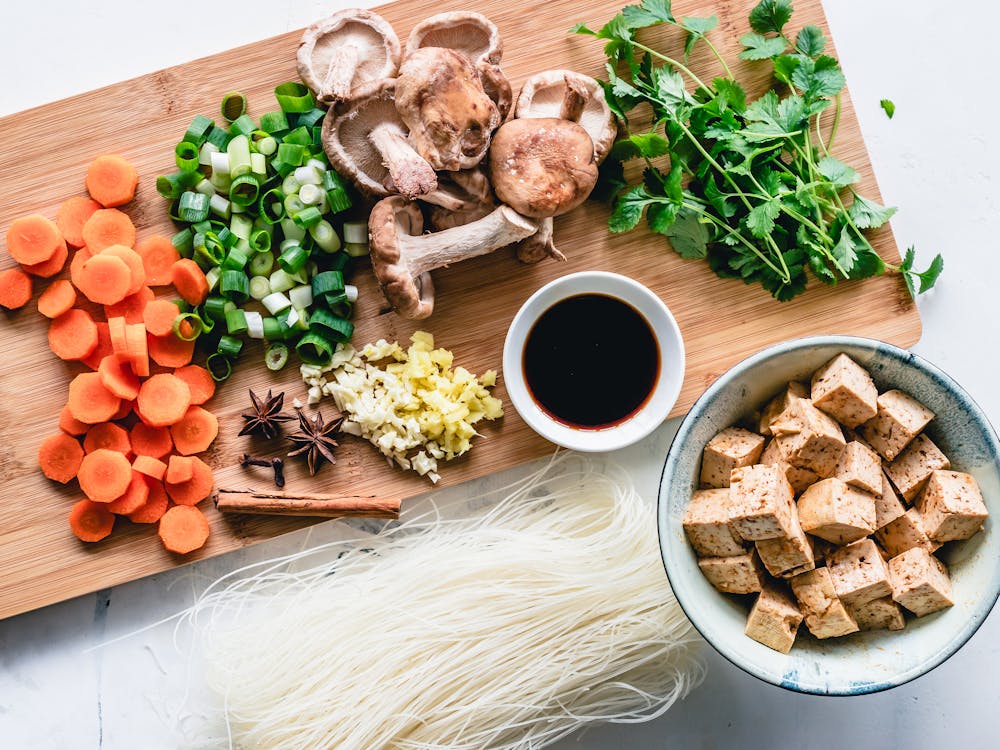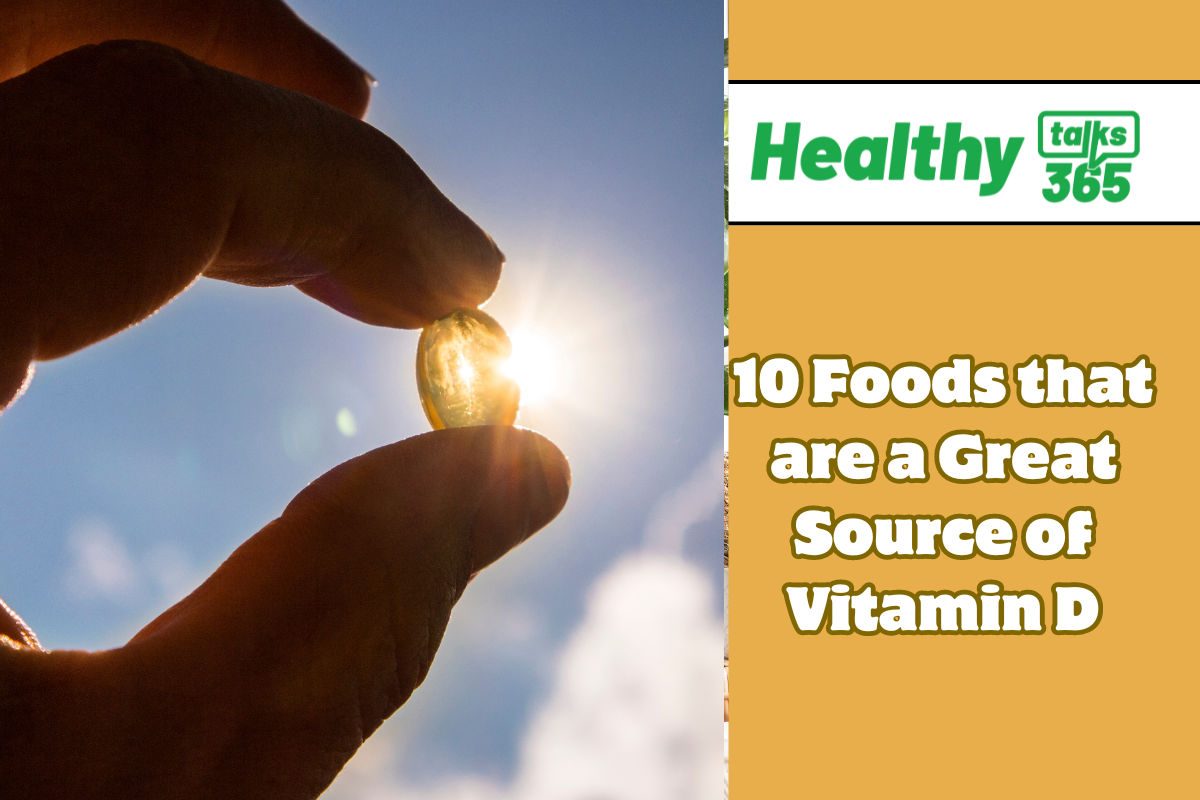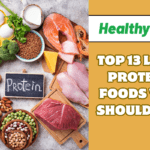10 Foods that are a Great Source of Vitamin D
1. Fatty fish is a great source of vitamin D
Fatty fish, such as salmon, mackerel, and trout, stand out as excellent sources of vitamin D. This essential nutrient, often referred to as the “sunshine vitamin,” plays a crucial role in various bodily functions.
The abundance of vitamin D in fatty fish stems from their diet and lifestyle. These fish species typically inhabit deep, cold waters, where they consume smaller fish and plankton rich in vitamin D. Consequently, they accumulate significant amounts of this nutrient in their tissues.
Consuming fatty fish provides a convenient and bioavailable source of vitamin D, particularly for individuals living in regions with limited sunlight exposure or those with dietary restrictions.
Read Also:
Focus While Studying: 10 Proven Methods
2. Egg yolk contains vitamin D
Egg yolk, the golden center of the egg, is indeed a notable source of vitamin D. This essential nutrient, crucial for maintaining healthy bones and immune function, is naturally present in varying amounts in egg yolks.
The presence of vitamin D in egg yolks is attributed to the diet of the laying hens. Hens that are raised outdoors or fed a diet rich in vitamin D produce eggs with higher levels of this nutrient.
Including egg yolks in your diet provides a convenient and versatile way to boost vitamin D intake. Whether consumed alone or incorporated into recipes, such as omelets, quiches, or baked goods, egg yolks offer a nutrient-dense addition to meals.

3. Cheese contains good amount of vitamin D
Cheese, a beloved dairy product enjoyed worldwide, offers a notable source of vitamin D. This essential nutrient, crucial for bone health and immune function, is present in varying amounts in different types of cheese.
The vitamin D content in cheese can vary depending on factors such as the type of milk used, the cheese-making process, and any fortification practices. Certain types of cheese, such as cheddar, Swiss, and mozzarella, tend to contain higher levels of vitamin D compared to others.
Additionally, cheese is a rich source of other essential nutrients, including calcium, protein, and phosphorus, which contribute to overall health and well-being.
4. Beef liver is rich in vitamin D
Beef liver stands out as a particularly rich source of vitamin D, alongside other essential nutrients. This organ meat, prized for its nutritional density, offers a significant contribution to vitamin D intake when included in the diet.
The vitamin D content of beef liver reflects the animal’s exposure to sunlight and its diet. Pasture-raised or grass-fed cattle tend to have higher levels of vitamin D in their liver compared to grain-fed counterparts.
In addition to vitamin D, beef liver is packed with other essential nutrients, including iron, B vitamins, and protein. These nutrients play vital roles in various bodily functions, such as energy metabolism, red blood cell production, and nervous system health.
Read Also:
11 Best Ways to Improve Your Digestion
5. Some mushrooms are rich in vitamin D
Certain mushrooms boast significant levels of vitamin D, adding a valuable dietary source of this essential nutrient. Mushrooms have the unique ability to produce vitamin D when exposed to sunlight or ultraviolet (UV) light, similar to humans.
This process, known as photolysis, triggers the conversion of a precursor compound in mushrooms into vitamin D2.
Among the mushroom varieties known for their vitamin D content are shiitake, maitake, and portobello mushrooms, though levels may vary depending on factors such as growing conditions and exposure to light.

6. Fortified food contains vitamin D
Fortified foods play a crucial role in addressing nutritional deficiencies, including vitamin D insufficiency, within populations.
Through fortification, commonly consumed foods such as milk, cereal, orange juice, and yogurt are enriched with added vitamin D, enhancing their nutritional value.
This practice aims to ensure that individuals receive adequate levels of this essential nutrient, particularly in regions or demographic groups where sunlight exposure may be limited or dietary intake is insufficient.
7. Cod liver oil is a good source of vitamin D
Cod liver oil stands out as an exemplary source of vitamin D due to its rich nutrient composition. This natural elixir derived from the livers of codfish holds a revered status for its potent dose of this essential vitamin.
Regular consumption of cod liver oil can help bolster vitamin D levels, especially in regions where sunlight exposure might be limited, such as during winter months or in areas with high cloud cover.
Moreover, the benefits extend beyond mere vitamin supplementation. Cod liver oil also contains omega-3 fatty acids, which are renowned for their role in promoting heart health and reducing inflammation.
Read Also:
Pregnancy: Signs, Symptoms, Overview, Health Tips You Should Know
8. Sardines are rich in vitamin D
Sardines emerge as a nutritional powerhouse, boasting an impressive content of vitamin D. These small, oily fish pack a punch when it comes to essential nutrients, with vitamin D being among their standout offerings.
Packed within their tiny frames lies a treasure trove of health benefits, including the promotion of strong bones and immune system support. Sardines offer a convenient and delicious way to boost your vitamin D intake, particularly for those who may not get enough sunlight exposure.
Adding sardines to your diet can be a savory endeavor, whether enjoyed fresh, canned, or incorporated into various dishes. Their versatility makes them a welcome addition to salads, pasta, sandwiches, and more, providing a burst of flavor along with their nutritional bounty.
9. Fortified plant based milk contains vitamin D
Fortified plant-based milk emerges as a valuable source of vitamin D, catering to the dietary needs of individuals adhering to vegan or lactose-free lifestyles.
This innovative product fills a crucial nutritional gap by providing a plant-derived alternative to traditional dairy milk while ensuring adequate vitamin D intake.
Through fortification, plant-based milk undergoes a process where essential nutrients, including vitamin D, are added to enhance its nutritional profile.
10. Fortified tofu contains high vitamin D
Fortified tofu emerges as a standout contender in the realm of plant-based foods, boasting an impressive concentration of vitamin D.
This versatile soy-based product undergoes fortification, a process wherein essential nutrients, including vitamin D, are added to enhance its nutritional value.
As a result, fortified tofu offers a potent dose of this vital nutrient, making it a valuable addition to vegan and vegetarian diets. Its high vitamin D content not only promotes bone health but also supports immune function and overall well-being.





